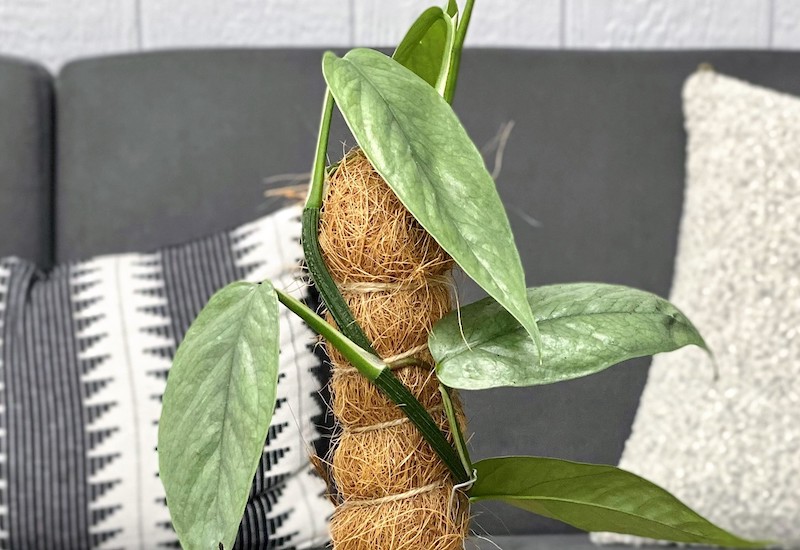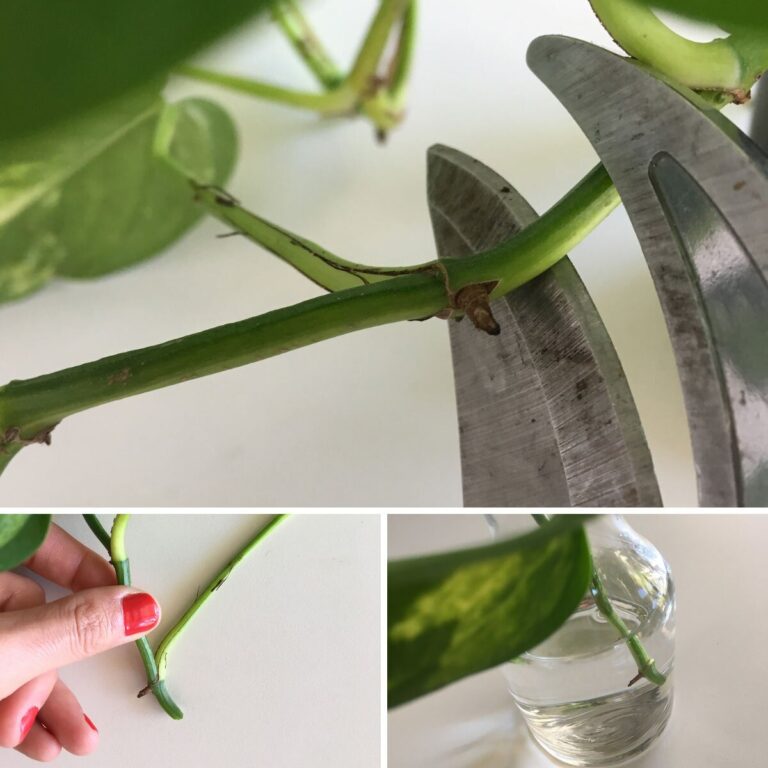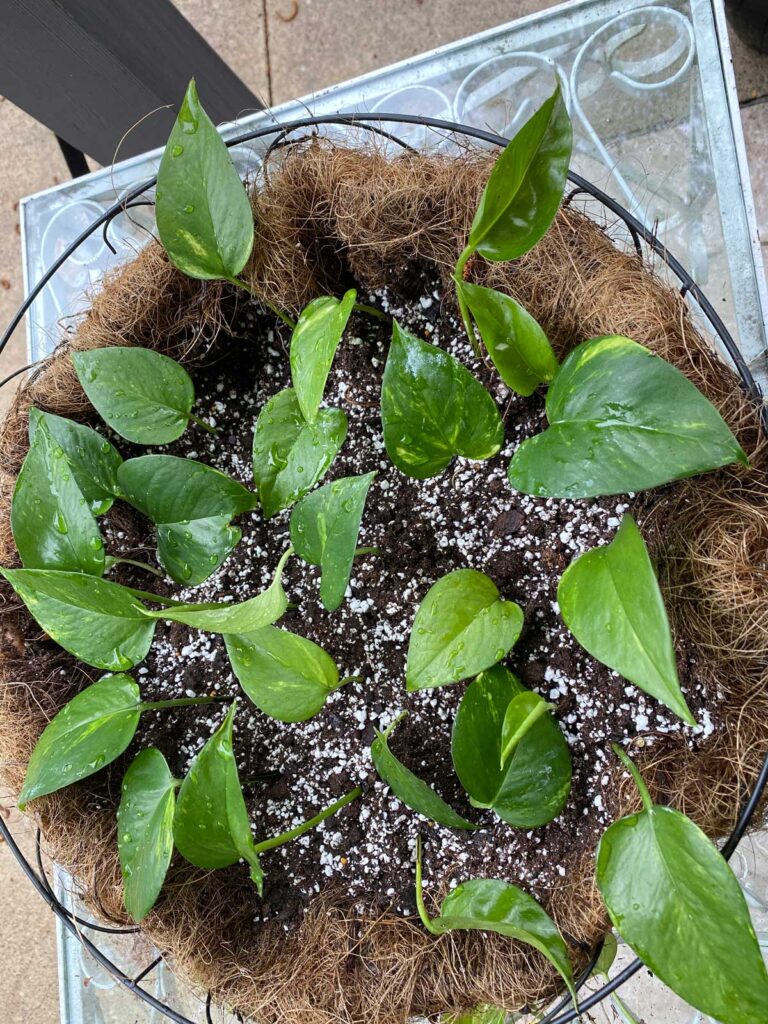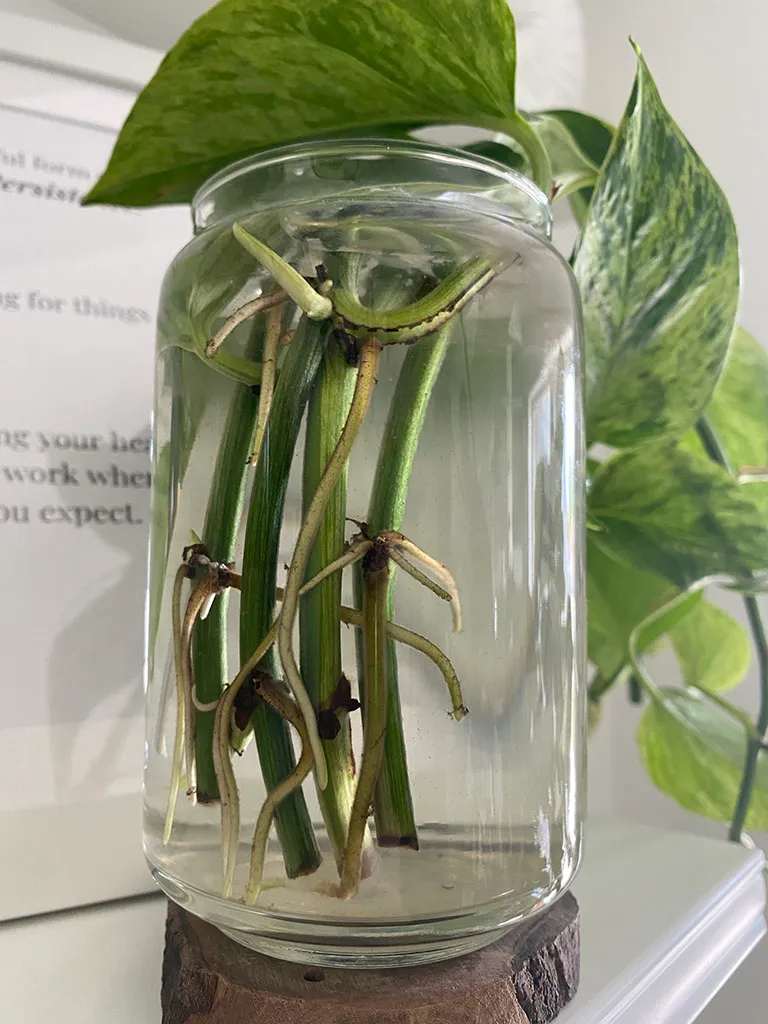Understanding Pothos Light Needs
You’re about to delve into the specifics of the pothos plant light requirements. These insights will enable you to cultivate a thriving, lush pothos plant in your indoor garden.
Importance of Light for Pothos
Light is essential for the pothos plant to photosynthesize efficiently. Photosynthesis allows your plant to convert light energy into chemical energy to fuel its growth. Pothos plants can adapt to various light conditions but prefer bright, indirect light for optimal growth. The right light conditions will help your pothos develop a vibrant green hue and maintain healthy foliage. For more on the overall care of your plant, check out our detailed guide on pothos plant care.
Effects of Inadequate Light
Insufficient light can significantly hinder the growth of your pothos. When deprived of adequate light, pothos plants have the ability to produce larger leaves with more chlorophyll to capture and utilize as much available light as possible (Cafe Planta). Despite this remarkable adaptation, lack of adequate lighting can still result in leggy growth, smaller leaves, and reduced variegation. Such symptoms might also indicate more serious issues like pothos plant not growing properly.
| Lighting Condition | Pothos Response |
|---|---|
| Bright, Indirect Light | Optimal growth, vibrant foliage |
| Inadequate Light | Leggy growth, larger leaves, reduced variegation |
Improper lighting may also cause your pothos to exhibit other problems such as leaves turning yellow or drooping. For further details on these issues, explore our articles on pothos plant leaves turning yellow and pothos plant drooping.
Understanding and providing the right light conditions will ensure your pothos plant remains healthy and continues to beautify your indoor space. To address more specific light-related issues, you might find our section on pothos plant low light particularly useful.
Light Requirements for Pothos
Understanding the light requirements for your Pothos plant is essential to ensure it thrives and remains healthy. Pothos plants are adaptable, but providing them with the optimal lighting conditions will enhance their growth and beauty.
Optimal Light Conditions
Pothos plants thrive best in bright, indirect light. This type of lighting condition simulates their natural environment and helps maintain the plant’s vibrant green leaves and variegation. Position your Pothos near a window with a sheer curtain or in a spot that receives filtered light. This will help to mimic the dappled sunlight they would receive under a forest canopy (Plants For All Seasons).
Variegated varieties like Golden Pothos or Marble Queen Pothos require more light than their solid green counterparts to maintain their beautiful patterns. Place these varieties in bright, indirect light for the best results.
| Lighting Conditions | Suitable for Pothos |
|---|---|
| Bright, indirect light | Optimal |
| Filtered light | Good |
| Low light | Tolerable, but may slow growth |
For spaces with limited natural light, Pothos can also thrive under artificial light. A grow light set to 10-12 hours a day can be an excellent alternative. This makes them suitable for offices or rooms without sufficient sunlight.
Explore more tips on caring for your Pothos in our pothos plant care guide.
Avoiding Direct Sunlight
While Pothos plants enjoy bright light, direct sunlight can be harmful. Prolonged exposure to direct sun rays can cause the leaves to burn, wilt, and potentially lead to the plant’s demise (Plants For All Seasons).
Symptoms of light stress include browning edges, leaf scorch, and drooping leaves. To avoid such issues, ensure your Pothos is not placed in a location where it will receive direct sunlight for extended periods.
| Symptom | Cause | Solution |
|---|---|---|
| Browning edges | Direct sun exposure | Move to a spot with indirect light |
| Leaf scorch | Intense, direct sunlight | Use a sheer curtain to filter light |
| Leaves wilting/drooping | Prolonged sunlight exposure | Relocate to a bright but shaded area |
For more detailed information on avoiding common issues with Pothos, visit our page on pothos plant problems.
By maintaining the right light conditions, you can ensure your Pothos remains lush and vibrant. Whether in a naturally lit room or under grow lights, understanding these needs will contribute to the overall health and aesthetic of your plant.
Managing Light for Pothos
Pothos in Low-Light Conditions
Pothos plants are versatile and can tolerate a range of light conditions, from bright, indirect light to low-light areas. They are known for their hardiness and ability to thrive even when light is limited. In low-light conditions, Pothos plants may produce larger leaves with more chlorophyll, enhancing their ability to capture and utilize available light, ensuring their survival in dimly lit environments (Cafe Planta).
| Light Condition | Leaf Size | Leaf Color | Growth Rate |
|---|---|---|---|
| Bright, Indirect Light | Standard | Deep Green | Optimal |
| Low-Light | Larger | Dark Green | Moderate |
Placing your Pothos near a window with filtered or indirect sunlight is ideal, but they can also thrive in areas farther from windows or under artificial lighting. Avoid placing them in direct sunlight as it can scorch their leaves and cause significant damage.
For more details on managing your Pothos plant in different light conditions, visit our page on pothos plant low light.
Using Artificial Grow Lights
In cases where natural light is insufficient, artificial grow lights can be an effective solution. Grow lights designed specifically for houseplants can provide the necessary light energy Pothos plants need to grow. Fluorescent grow lights are a popular choice due to their energy efficiency and effectiveness.
When using artificial grow lights, consider the following tips to optimize your Pothos plant’s growth:
- Light Duration: Provide 12-14 hours of light per day to mimic natural daylight.
- Light Distance: Position the grow light about 6-12 inches above the plant to ensure even light distribution.
| Artificial Light Type | Recommended Duration | Distance from Plant |
|---|---|---|
| Fluorescent Grow Lights | 12-14 hours/day | 6-12 inches |
| LED Grow Lights | 12-14 hours/day | 6-12 inches |
Using artificial grow lights ensures your Pothos receives consistent light exposure, especially in rooms with limited natural light. Make sure to adjust the light settings based on your specific environment to avoid excessive light exposure, which can lead to leaf yellowing or browning.
For more information on using grow lights effectively, check out our guide on pothos plant soil mix.
By understanding and managing the light requirements of your Pothos plant, you can ensure it remains healthy and vibrant. For more tips and detailed information, visit our section on pothos plant care.




